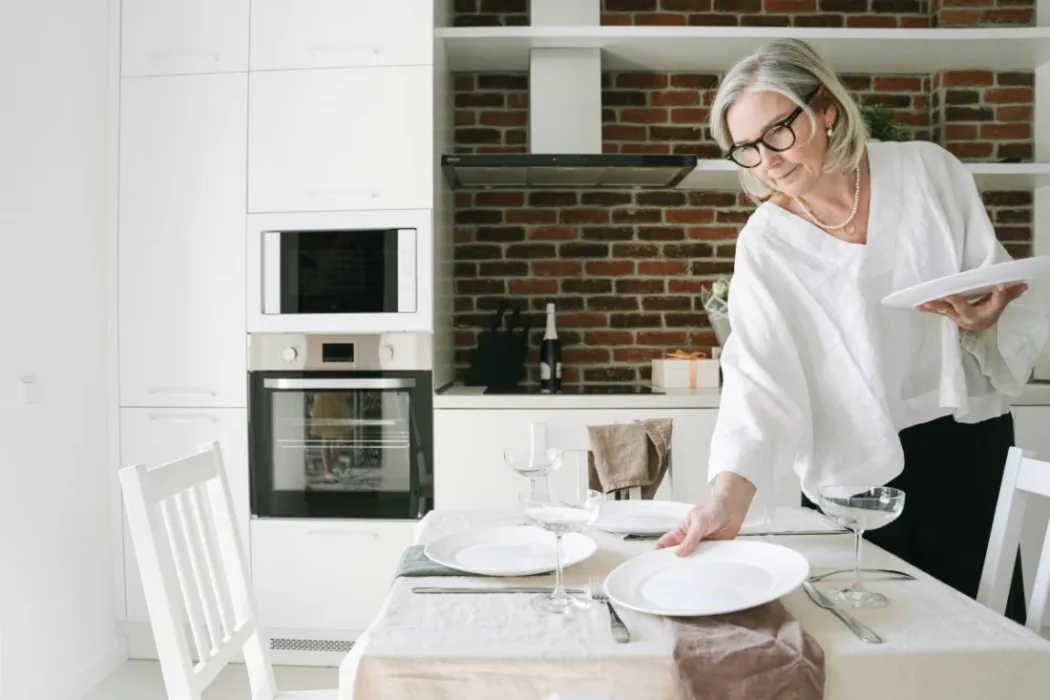Embracing Imperfection

Amanda, our second born, cut the thick rye bread on a cutting board across from the sink. The remnants of the bread scattered over the counter onto the floor. I bent down to sweep up the debris, and she said, “I have always felt the weight of your perfectionism.”
Annie, our firstborn, and I were talking on the phone, and she was recounting a conversation with her Internal Family Systems (IFS) colleagues. They had inquired about my perfectionism and how many generations it had been in our family lineage. Annie hoped that I could let a lot of that go so she and her siblings would not have to bear the weight and pass it on to their children.
In a two-day period, I had been blasted with sentences that should have been talked through with curiosity, but the timing was such that there was too much to do to keep busy grandchildren occupied. My husband tells me that I am a defensive person, which has helped me learn to be quiet and not offer a comeback sentence as a volley.
Instead, these encounters with my adult children left me wondering about my mother, grandmothers, and great-grandmothers. Growing up in the 1950s, I saw countless T.V. family sitcoms with a mother in heels, an apron and pearls on, while cooking in an immaculate kitchen. This was pretty much how all of my friends remember my mother. The living room was always like the magazine Home Beautiful.
My mother was a perfectionist. She showed her love through how she cooked and presented our meals. She was a child who grew up during the Great Depression and was put into an orphanage due to her mother’s incompetence to provide care. This helps me understand her bent for perfection. She showed her love through the clothing and curtains she sewed. Her daughters were well behaved, quiet, and obedient, and she knew everything about childrearing until my younger brother came along and threw a wild curveball into her life.
It is easy for me to see how different I am from my mother. I see myself as a woman who sees a flaw and thinks, “In heaven I will have a home that will be what I want.” I was a perfect Nine on the Enneagram long before its popularity in this last decade. For instance, I gave up trying to put bibs on our grandchildren a decade ago! My mother would have wrangled all her grandchildren and insisted them to keep a bib on. She also would not have allowed a child to touch the walls and windows! Amazing!
But I do have a lot of my mother in me. As a girl, being messy was never a desire of mine. I was the child that loved organizing drawers and keeping the kitchen stovetop clean by using toothpicks to get the grease out of the edge of a Formica countertop. And now, at this stage of life, I still like things orderly and clean, and I find it attainable and enjoyable.
With my daughters calling for change, I am listening.
I am wondering about the phrase “a beginner’s mind” that my yoga teacher often uses. Some of the thinking of a “beginner’s mind” is that past knowledge and preconceptions can cloud your judgment and stop you from seeing a familiar situation clearly. Even if you’re an expert in a topic or situation, it may become increasingly difficult to find solutions for new problems that arise. But with a beginner’s mind, you can approach a problem with more creativity and a fresher perspective. Thus, because you bring a fresh perspective to an old situation, you can get unstuck and experience something new as a result.
I find this, like Micah 6:8 says, to walk humbly. To walk humbly means to not presume I know more than I do and to open my body and mind to what is required for me to act justly and to love mercy. You see, with a beginner’s mind, I can rediscover the joy of experiencing something new. A beginner is almost never right, and as a result, he or she can enjoy new learning experiences. Letting go of the need to be right is exactly what “the doctor ordered.” I really want to aspire to this.
Along with a “humble mind” is the understanding that perfection is not the goal. It’s imperfection that is truer. Living into that reality offers a kind of liberation. Supposedly, it allows us to be easier on ourselves. I am all for that! I will be seeking to make a seat at the table of my life for “imperfection.” This might be the table where my daughters are hoping to join me.
Originally published in Red Tent Living on April 2, 2024.
